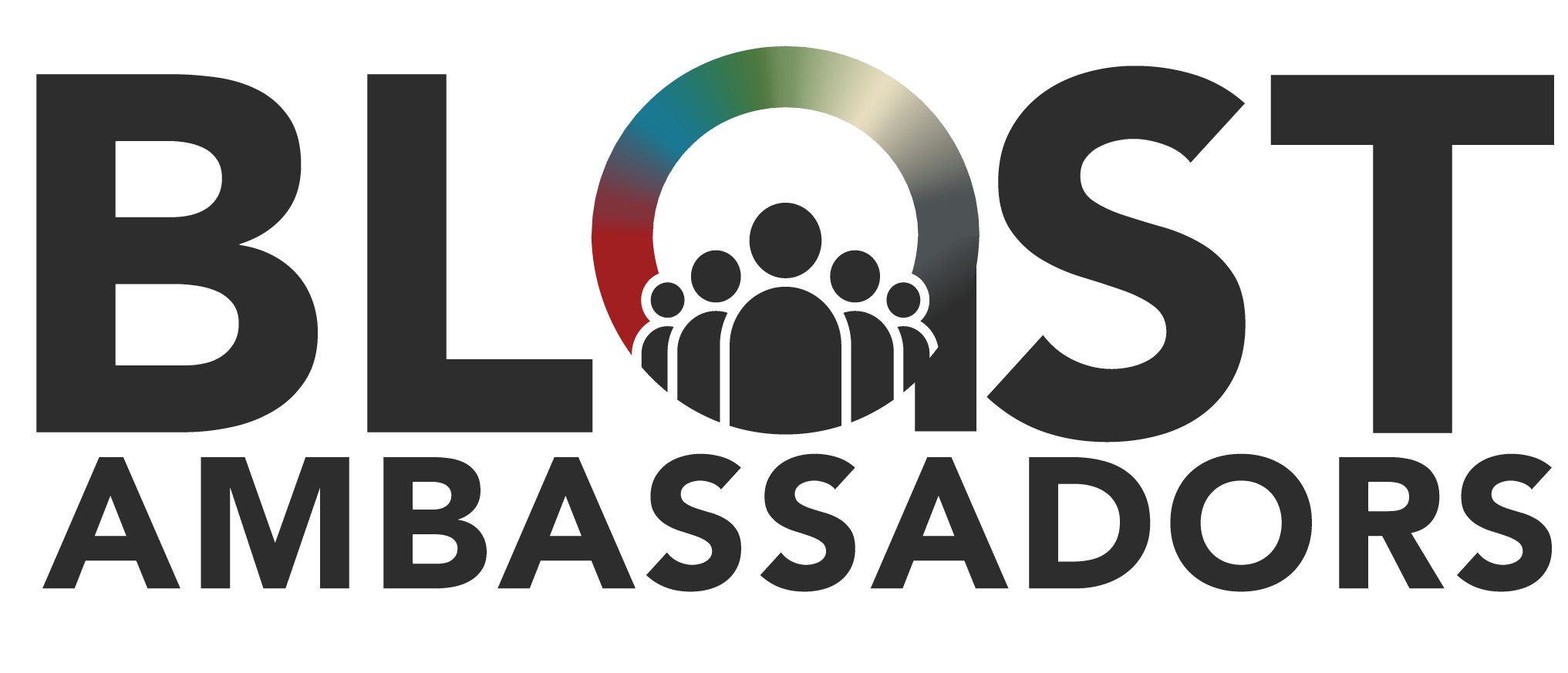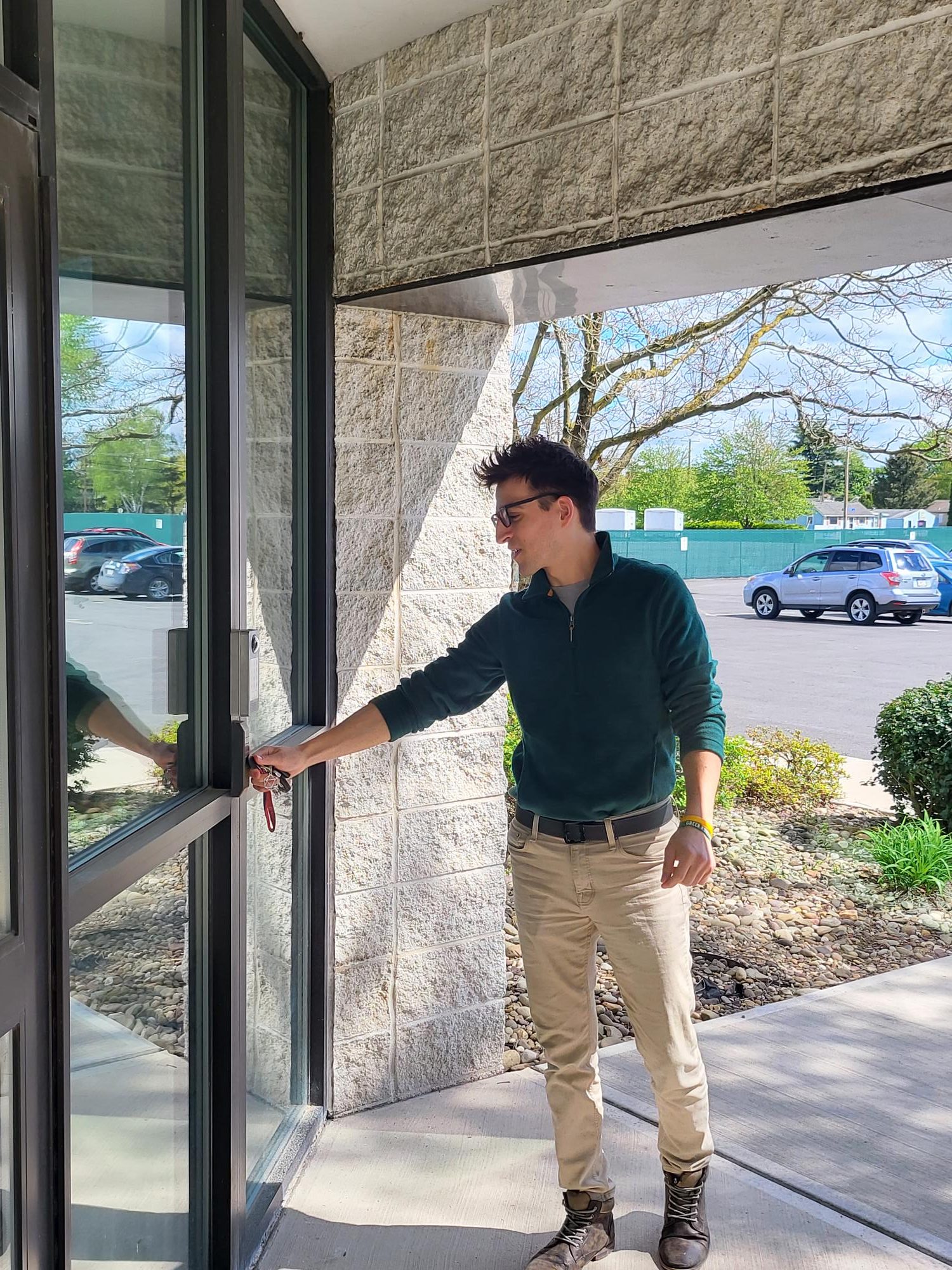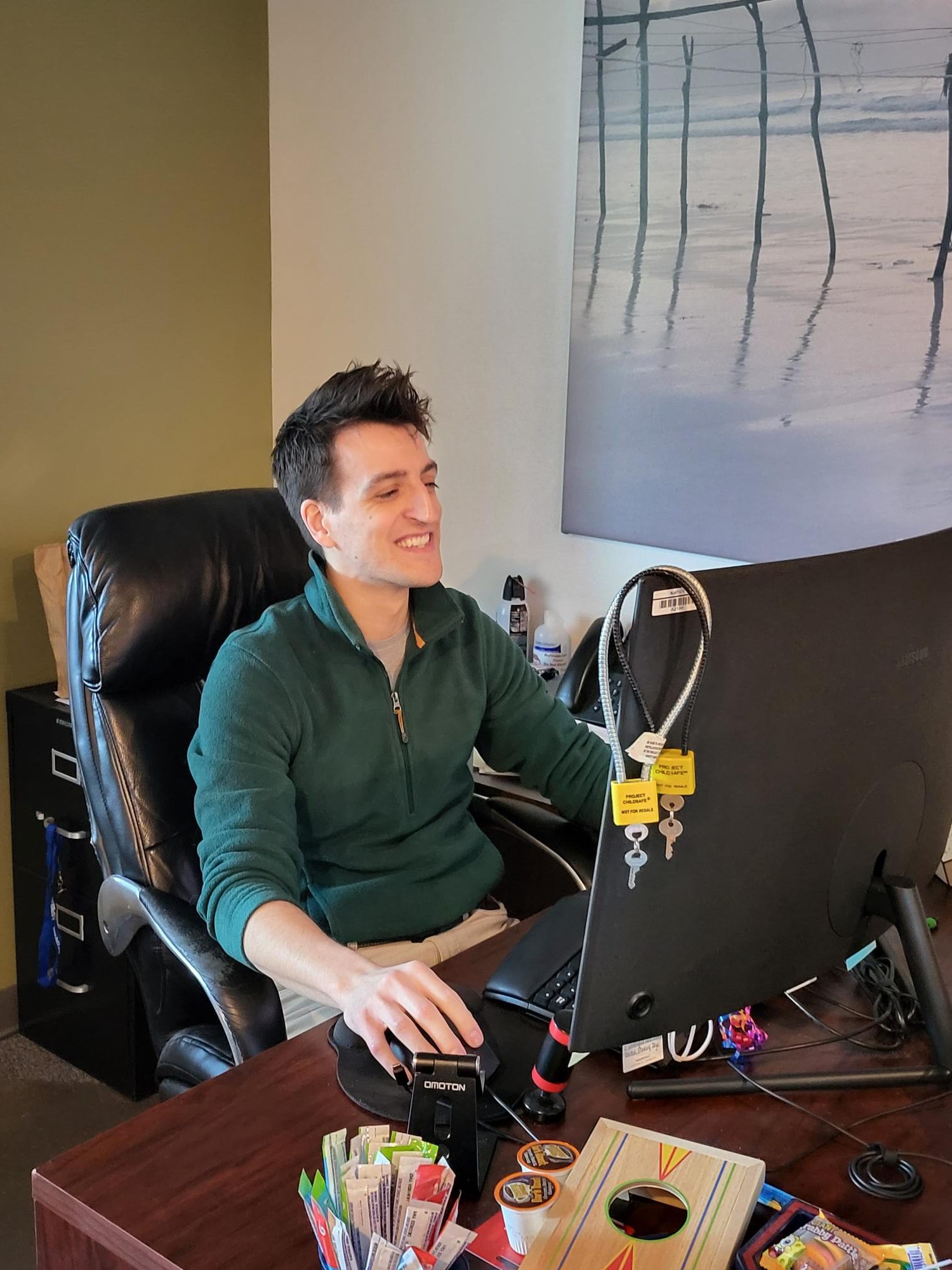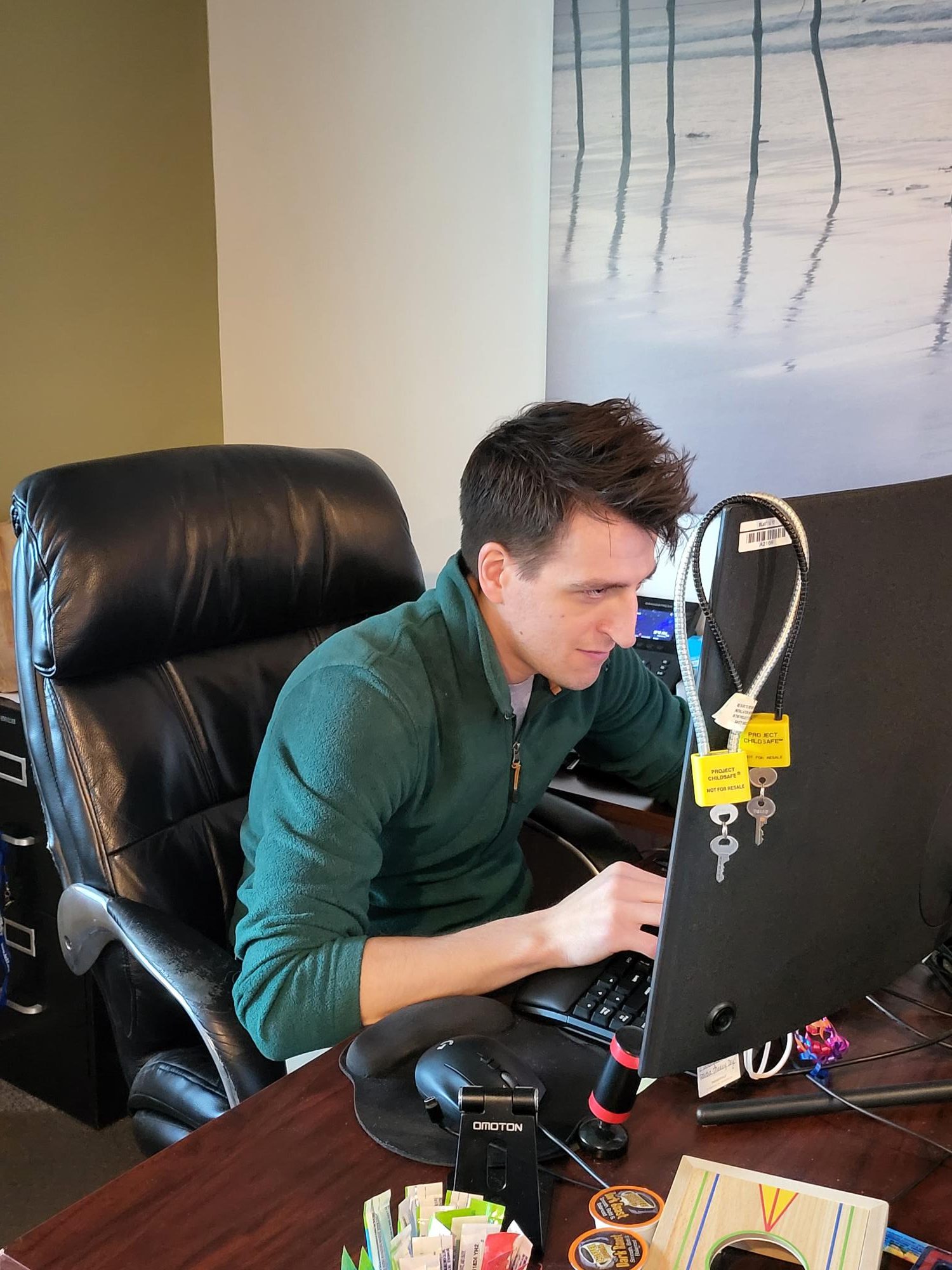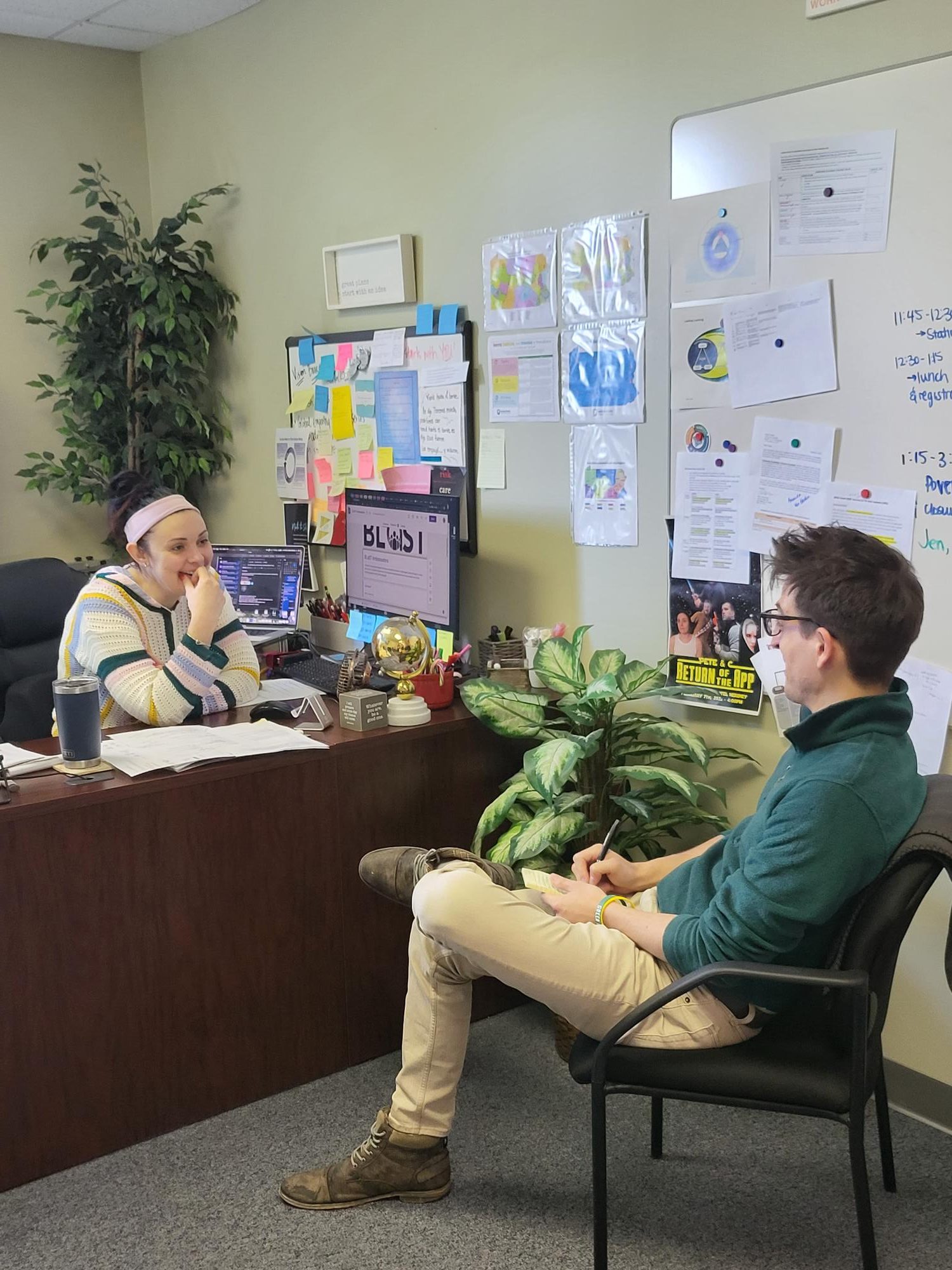Eric Budd
A Snapshot into the Life of a Lead Programmer
It’s important to show up bright and early, as the Lead Programmer, to set a good example.
Note how I’m smiling. Working on DaRTS and managing databases is both enjoyable and highly rewarding.
Note how I’m disgruntled. Legacy apps are haunted houses built out of complicated and complex nightmare code.
Soft skills are important. One of the most challenging aspects of programming is distilling the client’s needs into software requirements.
A Day in the Life of a Lead Programmer
From the outside looking in, most of my workdays are probably identical. I come in; I sit down; I snack on some junk food or candy for breakfast; I type a lot; I run to Jersey Mike’s and bring back 2–5 bags of takeout for the tech department; I type some more; and then I leave. The only apparent variation is in my body language. Some days I’ll be relaxed and at peace, joking breezily with the other techs, while other days, I will be running around frantically and cursing under my breath. Otherwise, an alien might not have any indication that one day is different from any other.
And that’s how I like it. I’m more than happy to perform a job function that most people don’t understand. I’ve written some positively trivial code in the past that has caused teachers to backflip with glee. I love teachers. They treat me like a wizard. In school, I was a teacher’s pet; today, I feel like a teacher’s beast of burden.
When I first sit down at my desk, I take inventory of the things that are broken. If nothing’s broken (or, at least, if we haven’t learned about anything being broken yet), I’ll get cracking on new features and projects. Frequently, people will call on me for a database export, for a DaRTS update, or an extra set of hands. Projects currently in the oven require meetings.
But that’s about it. I don’t follow a set agenda. I answer to the teachers in need of quality-of-life improvements and the administrators spearheading ambitious initiatives. Most of all, I answer to the little gremlins in your computer that carry all the data around and cause things to break. If you see a gremlin—or a tech worker—be sure to thank them for all their hard work.
Get to Know Our Ambassador
Transcript
Welcome to Blast the Airwaves with BLaST Intermediate Unit 17. Here at BLaST Intermediate Unit 17, we strive to transform lives and communities through educational services. On this podcast, we will provide you with educational solutions for all, no matter the learning environment. So teachers, administrators, caregivers, what are you waiting for? What would happen if we started questioning “What if”? What if we had a positive perspective on education? What if we flipped the switch on education? What if we were the solution?
Today we have the pleasure of speaking with Eric Budd, one of our BLaST Ambassadors here at BLaST Intermediate Unit 17 and within our organization, Eric serves as the lead programmer in our technology division. Eric, thank you so much for joining us today to discuss your role within our organization and also as an Ambassador here at IU 17.
“ Absolutely. It’s a pleasure to be here.”
“Great and are you ready to blast the airwaves?”
“I believe so.”
“ Perfect. So why don’t we start by having you tell us a little bit more about yourself and your role within the organization.”
“Okay. Well, I’m Eric. I’m a nerd. I kind of always have been and I live on the internet, so I play on the internet, and that also means I work here on the internet. I program things for the IU as the lead programmer. In addition to that, I’m in charge of district websites,in charge of databases both here and abroad. It’s a lot of responsibility, but it’s kind of my wheelhouse, so I really enjoy it.”“That’s awesome. Yeah, we were talking with Ann at one of our episodes about how she got to shadow the tech division. It’s just amazing! I don’t think people understand half the things that go on in the technology world. So, you are also a very fast typer?”
“Oh, most definitely. Yeah, I think my max is like 222 words per minute. Yeah, sometimes I’ll introduce myself as the fastest typer you’ve ever met, and sometimes also as the slowest eater.”
“Perfect!. So we spent a lot of time during our ambassador program discussing the intermediate unit as a system and the impacts the system has and how we collaborate with other systems within, you know, the local community, regional or at the state level. Intermediate units are unique in many ways for this case. Can you share with our listeners why you chose, I always say the intermediate unit “life”, and maybe what you enjoy about working at the Intermediate unit?”
“Sure. So I came from a “word press den” and I refer to these web design agencies lovingly, affectionately as “word press dens”, where they just kind of like crank out these word press sites as quickly as possible, amass as many clients as they can, and charge hosting fees and it was excellent. I loved it there. They were a terrific business. They do all kinds of cool work. I learned so much but moving from there, here to the intermediate unit, it’s kind of just a logical step forward for me.I love working with teachers and students versus like local business leaders who have their own like, you know, really tight demands and their own vendors and things like that. I love working with the technologies. Here at BLaST, we’re up on the Microsoft stack, which I find highly productive and enjoyable, whereas before I was working with a language called “PHP”, which is kind of the opposite.I love these opportunities. I love being able to go out into our classrooms periodically and most days it feels like I’ve made a positive impact on the world, which is something I am grateful for.”“Yeah, that’s wonderful. I mean, I know, you know, we are a solution seeking organization and you’re one of those people that I always call up on and say, “Eric, can we create something?” And you’re always there for it if you have the time. You’re also someone, you know, when we have our STEM or like STEM nights for districts or job fairs, you’re always the first one to say, “Oh yeah, I’ll go do that”, so we always appreciate that.”
“Yeah. I don’t know how to say “no” to people.”
“That’s alright. I think it runs in some people.”
“What I do tell people when they ask me, you know, “Can we do this?” or “is there a way to do that?” There’s always a way. It’s always possible. It’s just a matter of whether it makes business sense or whether we have enough time or manpower to pull it off which is another really exciting aspect of my job, I think, we’re kind of constrained only by our imaginations here.”
“Yeah, that’s a great way to put it. I think that’s one of the perks as well. So, now we sort of talked about your “why” for the Intermediate Unit, you chose the lead programmer for a reason, obviously. Can you explain why you chose this specialty and what advice you might give to listeners who are looking maybe to get into this field?”
“Hmm. Well,from a very young age, I decided that I didn’t really want to work with people. It’s nothing against people, it’s just I didn’t really want to work with people and be dependent upon people when I could work with machines and be dependent upon machines because the computer will only do what you tell it to do. If a computer screws up or is behaving in a way that you don’t expect there’s like a logical explanation. It’s not just being whimsical and unpredictable. There’s logic in order, which is something I really like, as a pretty severe introvert.
People don’t realize that,when I’m in our districts or at events or whatever, but I like to be alone and that extends to my work as well. I would tell aspiring programmers to program first and foremost. I think the most important thing you can do is go out there and build, start some fires, put the fires out,break things and then fix them. Our WordPress developer, whom we just hired this year, has no formal training in web design, and I think to an extent it kind of serves him well because he has no bad habits. His programming is superb. He taught himself with personal projects. When we brought him in, we’ve kind of built him up in the organization’s image, which is terrific. No programmer sits down and writes that complicated code with all the funny symbols, and then presses enter, and then they’re done. It’s constant trial and error, Googling, looking for what you need. So my advice is to just practice, burn yourself a few times,and acquire some scars. I’m making this out to be really, really morbid, but at the end of the day, you too will be able to do basically whatever you please within the realm of the internet.”“Yeah. So, I mean, I have to ask because I feel like you and I have talked about this, but I can’t remember what is your programming language of choice? I can’t remember what you said.”
“The programming language that I use most often here at the IU is called C#. It’s like a back end language, so when you interact with a website on the internet, you’re interacting with H T M L elements, which are styled with CSS and they do cool things with JavaScript. That’s kind of the easy part when you send data to us then, and it performs operations or it runs an export or something, then it runs into the C# on the back end, which is a little faster, a little optimized it gets so quote unquote “compiled down” into like very, very fast code that runs right next to our awesome processors downstairs, so that’s what I work with most of the time. It’s kind of behind the scenes kind of unsung. But my favorite technology that I use here at the IU would be SQL, structured query language,that’s database language. It’s for just interpreting, analyzing, exporting, or even updating and inserting data to our databases. They say, you know, oil used to be the most valuable commodity in the world, and now it’s data, which is definitely true. I think that’s definitely true here at the IU as well. Some of the moments that make me proudest and feel the most like an all powerful being are the moments when I’m writing SQL and interacting with the database. So, I’m a database administrator at heart, I think.”
“Wow, that’s amazing. I just like, you’re speaking a foreign language to me, but that happens. That’s really awesome. Yeah. So throughout the ambassador program, you also had a chance to, to also get out of the tech division world and shadow another portion of our intermediate unit. And you actually, I believe it wasn’t Early Intervention, correct, that you shadowed? So you went to assistive technology and you got to shadow someone for a day and that was a purpose on purpose because you also programmed some of the software that our itinerant use with DaRTS, which is a program that you keep running here at the Intermediate Unit. So, what did you notice or learn about this day?”
“That was a profoundly informative experience, I think. I got to go out into our school districts. I got to watch the sausage being made. I got to job shadow the inimitable Chris Bear,who is one of our premier speech therapists who’s been here forever. I followed her into a kindergarten classroom and then from there, that was in South Williamsport, and then we jetted over to Montoursville to work with high school seniors. So I got to see basically both ends of the spectrum there and it was highly illuminating. First of all, what they deal with, like Chris Bear, like jetting off from her one classroom to her other classroom, squeezing in a lunch, like trying to locate these students, corral them, keep track of them, maintain the schedule, she clearly has a lot of experience and I think learned the hard way. In addition to that, like seeing some of our service providers out in the classroom, Chris had to retrieve one of these language devices to return to the tech department for repairs and we briefly visited another classroom. In this classroom there was this young autistic boy with a tendency to self harm surrounded by service providers, and I was shocked. Like I was, I was shook. I was like, kind of like my blood ran a little cold. I might have been shaking like it was startling to witness this young child in such a fit but our service providers did such an amazing job. They brought him right down. They were so incredibly helpful and kind. They all smiled and then the boy’s teacher came over and handed us the instrument and he was like, he was delighted. Like I was shook and surprised and sort of stunned and he was so happy telling us about what great progress they had made with this child,so that was an eye-opening experience for sure. Just watching Chris work with DaRTS, the software that I maintained, was very rewarding. Between her and Ann Kehrer,whom you mentioned, who job shadowed us here in tech,the two of them have a similar workflow where they kind of have to bounce back and forth between pages, and I made both their lives a little easier by adding a little button where you can pop up the one page from within the other page. So it was, it actually helped guide our development of DaRTS too, so we got a feature out of it which is really cool.”
“ Yeah, and I think you bring up a really good point too. I mean, there’s just, in another episode, we talked about how in the organization we only really see one another, you know, we have almost 300 employees, we only see one another at in-service if we’re lucky, right?”
“ Mm-hmm.”
“That’s only in person. So when you see, and you’re out there and you see all these other trickle down and ripple effects, it’s so important to recognize and you know, the other piece too is your typical day isn’t an office behind a computer programming.”“Oh, yeah.”
“ Another person in our organization, their typical day is bouncing from one district to the other. And so there really is no, there’s some similarities between divisions and whatnot, but you, they’re so drastically different as well. So thank you for pointing those out.”
“ Oh, most definitely.”
“ So, yeah, you guys were the first cohort for our ambassador program, which is really exciting.
We are looking to start with another cohort. So what were some of your biggest takeaways through this ambassador experience?”“My biggest takeaway is that future ambassadors are probably going to get out of this program, what they put into this program. So if you just kind of tread along, kind of do the minimum, we kind of follow the steps. It’ll be, I mean, it’ll be great for you. It’ll be fun, but it’s not all that the BLaST Ambassadorship has to offer. Because I feel like I’ve volunteered for events that were very fun. I’ve interacted with the community, I’ve interacted with our kids, I’ve seen, like I say, the sausage being made, the other branches of the organization that I had no familiarity with and more to the point I made a bunch of friends too, like Chris Bear. Whenever I see her now, even on opposite sides of the building, she’ll wave and smile and we’re like good pals now. And all the other ambassadors, I think there’s a definite camaraderie there, which is great but there are times when they’ll float it, they’ll float opportunities to us. Like if any ambassador wants to volunteer, my recommendation to future ambassadors is to volunteer because it’s really engaging and fun and I think it was a rewarding experience.”
“Yeah, I would have to say this cohort, you know, everyone in your group has been very engaged and we’re really fortunate because there’s a number of opportunities that you guys all can sit on and we try to play to your strengths and what you’re interested in. So, Thank you! And now it’s time… here’s my favorite part. I call it the “BLaST Five”. So five grand questions to get to know you outside of Programmer, Eric Budd.”
“All right. Here goes nothing.”
“Yeah. So can you tell us and share with us your favorite genre of music?”
“I listen to just about everything. Stop me if you’ve heard this before. My favorite genre of music though I think it would have to be like hip hop. Not necessarily like mainstream rap or anything like that, but I am most intrigued by some of these sort of derivative genres, like hip hop mixed with something else. Jazz hop is one of my favorites. Country rap… I have a soft spot for country rap. I just really like, like R&B, modern hip hop type music, I think. But I do listen to everything.”“Yeah. Over in the tech department, you guys do have some good Spotify playlists and stuff, so yeah. I do know you have a little bit of a passion with, you know, the literature side of things, but what about your favorite reads or genres?”
“So mostly I’ve been reading non-fiction to try to world build a fantasy world for D&D, but I don’t think any of those, I don’t think those count. I don’t think anybody wants to read those. My favorite non-fiction series, I think, is called the Baramay Sequence by Jonathan Stroud. It is like a British,it’s basically like Harry Potter if the magic creatures were like spirits, and the magician’s job was to summon the spirits, and it’s really, really cool. It’s like a historical fiction. It’s like an alternate history type thing. Barda Maus, it’s like Harry Potter, but better.”
“That’s awesome. Okay, and what about your favorite Netflix series? TV show? Could be Hulu. What do you like?”
“ My favorite, this was an easy one. My favorite TV show is HBO’s “The Wire”. I don’t think I’m ever going to have another TV show that I like more. If I do, that would be an amazing, amazing, amazing- “The Wire” is the best! Go watch “The Wire”. It’s my favorite for sure.”
“All right, we’ll have to check that out. Favorite food or restaurant?”
“Hoss’s Steak and Sea House. Yep. I moved away recently and it’s been a while”
“So wow. Yes, I haven’t been in there for a while, but I’ll have to visit again. Favorite motto or quote?”
“So I racked my brains about this a little bit and I finally decided on, cause I knew, you know, I knew the fast five in advance, and I had finally decided on a Carl Sagan quote from Cosmos, where he says, “the nitrogen in our DNA, the calcium in our teeth, the iron in our blood, the carbon in our apple pies, we’re made in the interiors of collapsing stars”. Carl Sagan says, we are made of star stuff which I think is amazingly cool to think about that perhaps this universe is just a great big engine for producing life like us, and maybe we’re meant to be here. I’d like to think anyway.”
“I love it. That’s deep. I know sometimes in our sessions we get a little deep and I know I promote that, but,yes, you’re one of my deep thought partners with me here at the IU, so I always appreciate that.”
“I do what I can.”
“Well, we cannot thank you enough for your time today, Eric, and we know our listeners I’m assuming, but I know our listeners enjoyed connecting with you through the airwaves and I’m sure they might want to connect with you further. So what I’m gonna encourage listeners to do, if they’d like to learn more about becoming a lead programmer or even connecting with you, Eric, to visit our website, www.iu17.org and our BLaST Ambassador page. Again, Eric, this has been a blast! Thank you for taking some time today to BLaST the Airwaves with us and our listeners. Always a pleasure to chat with you and catch up. Take care. Let’s talk soon!”“Oh yeah, most definitely. You know where to find me!”
“Oh, I know, I know. So awesome. See you later.”
“Thank you so much for the opportunity. Have a great day.”
We would like to thank you for BLaSTing the Airwaves with us today. If you like the show, please subscribe or leave a review. If you want to know more, check out www.iu17.org for further resources and show notes. As always, we want to thank you for what you do every single day. Remember, keep shining! We’ll be back next episode to provide you another educational solution for all as we continue to transform lives and communities through educational services.

